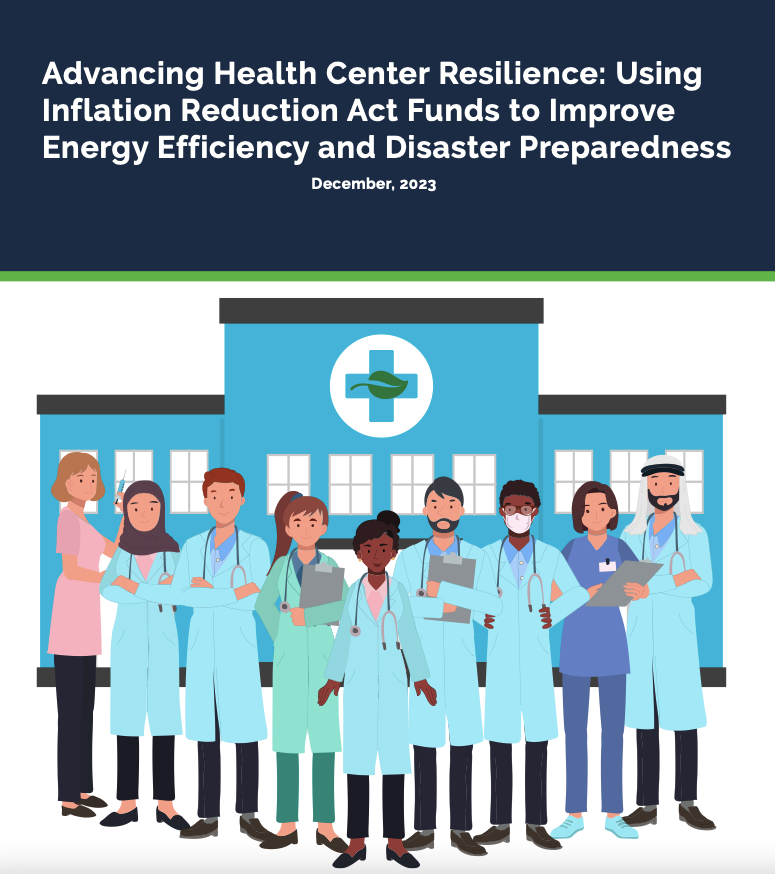Advancing Health Center Resilience: Using Inflation Reduction Act Funds to Improve Energy Efficiency and Disaster Preparedness
Organization: Medical Society Consortium on Climate and Health, National Association of Community Health Centers (NACHC) & Rewiring America
Year: 2023

Climate change is a threat to public health and presents dangers to the healthcare system. Floods, fires, storms, and extreme temperatures can limit a health center’s ability to remain operational during an emergency. However, on-site renewable energy, weatherproofing and other resiliency measures save money on energy bills, protect health centers against environmental threats, and help them stay open during and after disasters. Energy efficiency measures also create cleaner, greener health centers, leading the way to a sustainable future for patients within the community and beyond. Existing funding from the Inflation Reduction Act can substantially reduce or even fully cover the cost of installation. While solar and weatherproofing measures can be a substantial amount of work, these resiliency measures, when implemented early on, can substantially reduce spending, employee workload, and energy usage in the event of an outage or climate-related disaster.